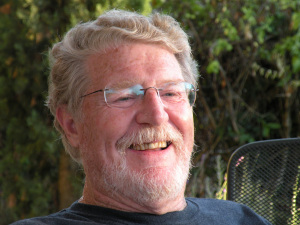Reprinted from Dispatches From The Edge
"Today, the danger of some sort of a nuclear catastrophe is greater than it was during the Cold War and most people are blissfully unaware of this danger."
--William J. Perry
U.S. Sec. Of Defense (1994-97)
William Perry has been an inside player in the business of nuclear weapons for over 60 years and his book, "My Journey at the Nuclear Brink," is a sober read. It is also a powerful counterpoint to the North Atlantic Treaty Organization's (NATO) current European strategy that envisions nuclear weapons as a deterrent to war: "Their [nuclear weapons] role is to prevent major war, not to wage wars," argues the Alliance's magazine, NATO Review.
But, as Perry points out, it is only by chance that the world has avoided a nuclear war -- sometimes by nothing more than dumb luck -- and, rather than enhancing our security, nukes "now endanger it."
The 1962 Cuban missile crisis is generally represented as a dangerous standoff resolved by sober diplomacy. In fact, it was a single man -- Russian submarine commander Vasili Arkhipov -- who countermanded orders to launch a nuclear torpedo at an American destroyer that could have set off a full-scale nuclear exchange between the USSR and the U.S.
There were numerous other incidents that brought the world to the brink. On a quiet morning in November 1979, a NORAD computer reported a full-scale Russian sneak attack with land and sea-based missiles, which led to scrambling U.S. bombers and alerting U.S. missile silos to prepare to launch. There was no attack, just an errant test tape.
Lest anyone think the Nov. 9 incident was an anomaly, a little more than six months later NORAD computers announced that Soviet submarines had launched 220 missiles at the U.S. -- this time the cause was a defective chip that cost 49 cents -- again resulting in scrambling interceptors and putting the silos on alert.
But don't these examples prove that accidental nuclear war is unlikely? That conclusion is a dangerous illusion, argues Perry, because the price of being mistaken is so high and because the world is a more dangerous place than it was in 1980.
It is 71 years since atomic bombs destroyed Hiroshima and Nagasaki, and humanity's memory of those events has dimmed. But even were the entire world to read John Hersey's Hiroshima, it would have little idea of what we face today.
(Note: You can view every article as one long page if you sign up as an Advocate Member, or higher).






